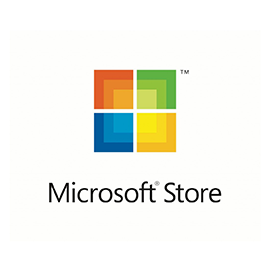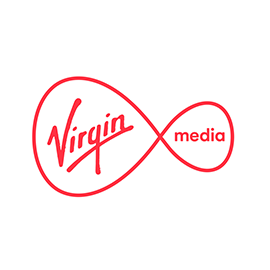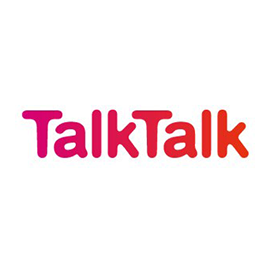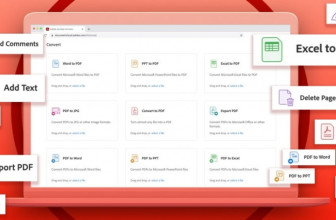
Introduction and reasons 1 to 4
Microsoft has been around for over 40 years and has seen some of the biggest industry changes first-hand. In that time, the company has made friends and enemies, been sued by governments, and sold billions of products.
Apple and Google have a similar story, albeit over a shorter period of time for the latter. But there is one aspect in which these companies differ: Microsoft is often unfairly criticised for things which the other two companies also do.
The reasons for this are varied – some go way back to when Microsoft aggressively fought for the PC and internet markets in the late 1990s, for example – and are certainly worth exploring. And that’s exactly what we’re going to do in this article, in which we’ll explore eight different criticisms, starting with….
1. How they treat users
Microsoft’s products and attitude are often criticised for being user-hostile. Windows 8, for example, was derided for being worse than Windows 7 and, while that may be the case, it ignores the fact that Google and Apple have made similar bloopers.
For example, way back when, Google released a tablet-only version of Android – version 3.0 – that was universally considered to be awful, but the company was forgiven after subsequent releases. While Windows 8 wasn’t perfect, it paved the way for Windows 10 – which is far better – just as Android 3.0 paved the way for today’s versions of Google’s OS.
Windows 10 is a definite improvement, as are subsequent versions of iOS and Android, which shows that when these firms apply their minds to a problem, they can usually fix it.

2. How they treat partners
Microsoft’s main partners are PC makers. Until recently, none of the computers that ran Windows were actually made by Redmond. However, that changed with the Surface tablet and, more recently, the Surface Book 2-in-1 laptop.
PC manufacturers were not at all happy when the news broke that Microsoft was making a tablet, and the company was roundly criticised for this move in the media and development community.
Google has a similar relationship with its phone makers and arguably wields more control over who does what and when. Reports have surfaced that show Google dictating certain terms to phone vendors like Samsung, but without the same levels of derision shown towards Microsoft.
3. Lobbying
Lobbying is an everyday fact of being a company in the US or European market. Google, Apple, and Microsoft are all aware of this and dedicate some of their revenue to changing, or shaping, policy.
Google is routinely the biggest contributor to lobbying efforts every quarter, spending somewhere in the region of $5 million (around £3.8 million, AU$6.5 million) in each three-month cycle in 2015. Microsoft also spends money on lobbying – around $8 million (about £6 million, AU$10.5 million) total in 2015 – but is seen in a different and more negative light to the search giant.
This could be due to the various antitrust lawsuits filed against Microsoft in the late 1990s and early 2000s, but really, that happened a long time ago now. Apple, too, has increasingly become a player in the lobbying world, even opening a Washington office.

4. How they treat developers
Tim Sweeney, the co-founder of Epic Games, wrote an editorial in The Guardian earlier this year that lambasted Microsoft for its Universal Windows Platform idea, which unifies the platforms behind the PC, tablet, smartphone and Xbox.
“The risk [with UWP] is that, if Microsoft convinces everybody to use UWP, then they phase out Win32 apps,” Sweeney wrote. This would mean that many older apps that are supported by older versions of Windows would no longer work.
This criticism is valid, and gained a lot of attention, but is fairly routine when compared to what Google and Apple do with their respective app stores through various policies. Apple’s strict approval process has certainly drawn the ire of some developers (and there have been accusations of anti-competitive practices, even). And on a broader level, Cupertino has been annoying developers for ages and has only recently started updating the App Store with the features devs want, such as better search functionality.
Reasons 5 to 8

5. Update reminders
One of the most recent controversies that Microsoft has faced is over Windows 10 upgrade notifications on older computers running Windows 7/8. The ‘Get Windows 10′ notifications were poorly designed and frequently repeated, although they’ve now been canned since the free upgrade offer expired at the end of last month.
But there’s no doubting that while it lasted, the pop-up controversy did some damage to the perception of Windows 10 and Redmond’s reputation in general.
However, Microsoft isn’t alone in pushing new updates at users, as anyone with an iPhone, iPad or Mac knows. When a new version of iOS or OS X (soon to be macOS) is available, Apple will relentlessly push it, sometimes with multiple pop-ups per day.
6. Abandoning older mobile devices
Microsoft has made many attempts at getting mobile right and, so far, none have been successful. But some of its mobile moments have been more unsuccessful than others.
Back in 2010, Microsoft launched Windows Phone 7, to coincide with Windows 8. The operating system was a reboot of the Windows Mobile brand, which had quickly become outdated post-iPhone. The refresh was praised for its design ideas and had some nice hardware to accompany it.
Not two years later, however, Microsoft launched Windows Phone 8 – and dumped the previous version and all its users, leaving them with no upgrade path to the new OS. This was done in good faith, as it was required to bring all versions of Windows onto the same kernel, but it angered many users and created bad feeling around Microsoft’s mobile ambitions.
However, the incident does bear a resemblance to Apple’s transition over to Intel computer chips from PowerPC, a shift in architecture which left a lot of older Mac users out in the cold.

7. Hardware defects and problems
Microsoft has had some issues with the Surface Book not working for certain users. The convertible laptop, introduced last year, is the company’s first foray into the market segment and, as such, it was not perfect. Some user’s screens glitched out and others experienced excessive battery drain.
To its credit, Microsoft was quick to issue replacements and the flaws have subsided, at least in the press – although some bugbears remain. (Note that the Surface Pro 4, launched at the same time, has also had its problems).
However, Apple also had issues with its iPad Pro at launch, showing just how hard it is to get these things right from the get-go. The company was initially slow to acknowledge the problems, however, but eventually began issuing new devices to affected customers.

8. Collecting user data
In recent times, privacy has been a very thorny issue for Microsoft, from the always-on controversy that initially surrounded the Xbox One, through to accusations of Windows 10 riding roughshod over user privacy rights. Most recently, French authorities blasted Redmond’s desktop OS over its “excessive” collection of user data.
However, if you want to see how data mining is really done, of course you only need look at Google and its long history of hoovering up user data via its search engine, Android, Gmail, and indeed almost every other service the company runs.
Source: techradar.com










































This article is a clear example of false equivalence.